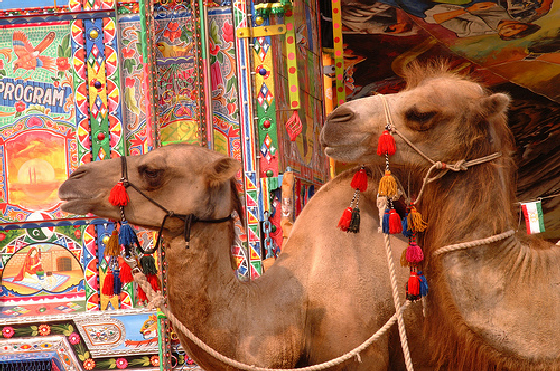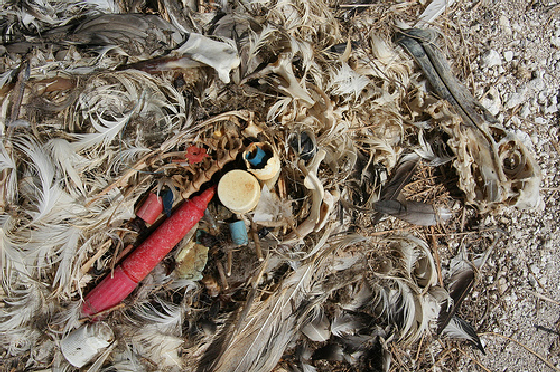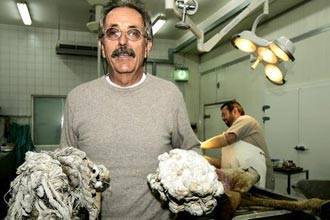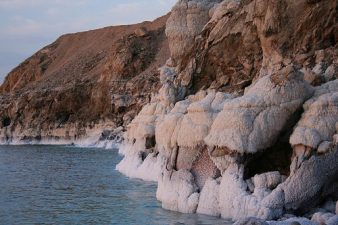 There is life after plastic. Ban the bags, and save the camels
There is life after plastic. Ban the bags, and save the camels
One hundred years ago, there was no such thing as a plastic bag. They simply didn’t exist. The plastics revolution began slowly in 1868 but really pushed forward in the 1930s when acrylic resins were developed to create housewares, toys, and packaging. The industry exploded. The first plastic garbage bag was invented by Harry Waslyk in 1950. They weren’t supposed to be used at home since their original purpose was strictly commercial, but now they are ubiquitous. Surely Mr. Waslyk could not have predicted how much havoc his plastic child would wreck in a mere 60 years.
Today we have islands of plastic to which emergency environmentalists like David De Rothschild respond with flashy educational journeys. It seems we will do anything to jar people out of their reverie, but in the meantime it’s difficult to even imagine a life without plastic: tables, chairs, packaging, bags, lids, bottles, and even building materials are made from it. The revolution has been so successful, in fact, that plastics are among the debris orbiting our planet. Unfortunately, our wildlife and now domestic animals are paying the price.
 This albatross starved to death because its parents fed it plastic [image via flickr]
This albatross starved to death because its parents fed it plastic [image via flickr]
We’ve been privy to the upsetting images of birds with bellies full of bits of lids, and of whales with the same toxic diet, but now we need to swallow the realization that camels too are perishing from our plastic habit.
The Emirates News Agency reported that the decomposed remains of camels in the desert region of Falaj Mualla, first discovered as early as 1997, revealed that 50% of the camels died from swallowing and choking on plastic bags (see left image of plastic rocks found in camel guts). And while the camels had decomposed, their plastic bellies had not, according to the Ministry of Environment and Water.
“Rocks of calcified plastic weighing up to 60 kilograms are found in camel stomachs every day,” said Dr. Ulrich Wernery, Scientific Director, Central Veterinary Research Laboratory in Dubai, whose clinic conducts hundreds of post-mortems on camels, gazelles, sheep and cows in the UAE to Al Arabiya. He adds that one in two camels die from plastic.

The Ministry’s Director of Awareness Khalid Al’Sa’edi told Bernama that “certain behavior of some community individuals adversely affect the environment and lives of the creatures” and claims that the UAE aims to be free of plastic bags. This seems like the most reasonable solution, since shoppers can hardly be blamed when merchants hand out bags willy nilly. If confronted with no alternative than to ruffle through their cupboards for a non-plastic alternative to carry their groceries, consumers would certainly do so.
Because there is a life after plastic. San Francisco is the first city in the world to ban them altogether, although there are reports that smaller merchants are still using plastic. However, that a city government is capable of mustering the political will to ban a harmful product, and that consumers have survived said ban, demonstrates that a healthy mix of ingenuity and environmental conscience can go a long way.
More About Fauna in the Middle East:
Clash Between Greenpeace Activists and Bluefish Tuna Fishermen in the Med Sea
Baby Croc Harry Dies in Dubai: Another Animal Abuse Case?
Is Willie the Grey Whale Lost or Looking for Club Med? (VIDEO)
[Plastic rock picture via Alarabia.net;
Top image via flickr]




Please be so kind as to get the name of my father right: Prof. Dr. Ulrich Wernery, Scientific Director, Central Veterinary Research Laboratory, Dubai, United Arab Emirates
I didn’t add everything, but thank you.
Hey, Coke can be really refreshing if you live all day in the desert. I don’t blame the camel for succumbing to this small pleasure in life…
While in Jordan, the tour guide “treated” us to a sight of a camel opening, and drinking a coke all by himself… (uh!) Poor creatures…
It’s a shame to see such beautiful animals come to such an undignified death.
There is a solution however, which comes in the form of oxo-biodegradable plastic using the d2w additive.
http://www.youtube.com/watch?v=i3TGqcpWJTM